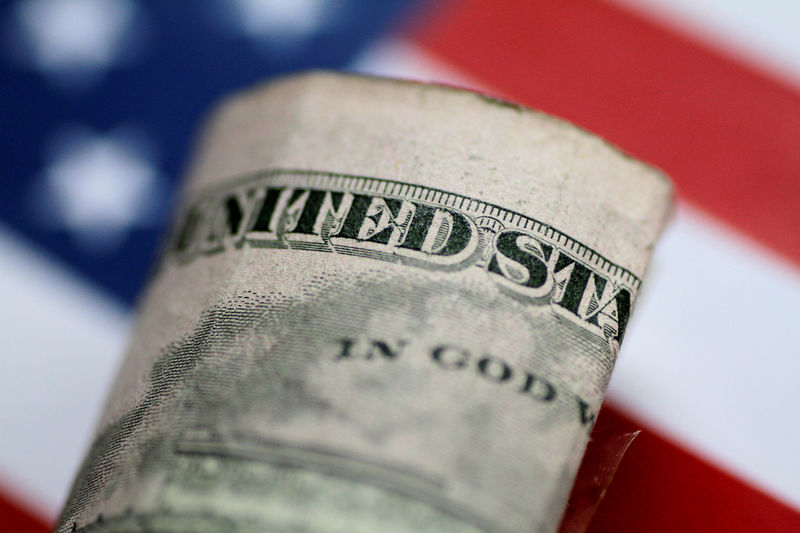By Karen Brettell
NEW YORK (Reuters) - The U.S. dollar slipped on Monday as concerns about a prolonged government shutdown and sharply lower equity markets reduced demand for the greenback.
U.S. President Donald Trump's budget director and chief of staff, Michael Mulvaney, said on Sunday the partial U.S. government shutdown could continue into January, when the new Congress convenes and Democrats take over the House of Representatives.
U.S. Treasury Secretary Steven Mnuchin, meanwhile, said on Sunday that he had held a series of phone conversations with the heads of the six largest U.S. banks in an apparent attempt to soothe investors disconcerted by the declining stock market.
"The CEOs confirmed that they have ample liquidity available for lending," the Treasury Department said.
Mnuchin "also confirmed that they have not experienced any clearance or margin issues and that the markets continue to function properly," the Department said.
The calls did nothing to reassure equity investors, who fled stocks for the relative safety of U.S. Treasuries and gold. The Dow Jones Industrial Average ended pre-holiday trading down nearly 3 percent and the S&P 500 finished the day 2.7 percent lower.
"Mnuchin attempted some damage control," Win Thin, global head of currency strategy at Brown Brothers Harriman, said in a note, adding that the move could backfire.
"Yes, markets have been worried about recession and Fed policy mistakes. Until this weekend, however, markets were not that concerned about liquidity or clearance issues. And with markets on edge, the last thing they needed was another issue to worry about," Thin said.
The Treasury Department also said Mnuchin will convene a call on Monday with the president's Working Group on Financial Markets, which includes Washington's main stewards of the U.S. financial system and is sometimes referred to as the "Plunge Protection Team."
The dollar index against a basket of six other major currencies (DXY) dipped 0.46 percent to 96.511. It has fallen from a one-and-a-half-year high of 97.711 on Dec. 14.
The dollar has weakened since the Federal Reserve on Wednesday adopted a less dovish outlook on further rate hikes than many had hoped, raising concerns that the U.S. central bank will keep raising rates into a weakening U.S. economy.
Mnuchin on Saturday countered news reports that Trump had suggested that Fed Chairman Jerome Powell be fired because of the Fed's continued interest rate hikes.
Trump on Monday renewed his criticism of the Fed, however, tweeting that the central bank was the "only problem" for the U.S. economy.

Trading volumes were thin on Monday with Japan closed and major global markets preparing to shut for the Christmas holiday on Tuesday.